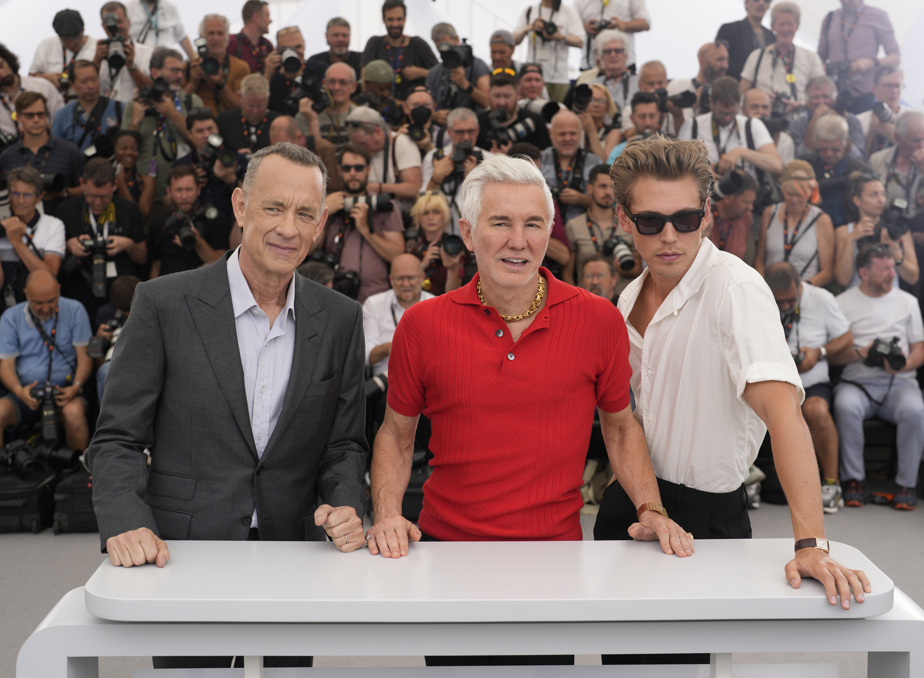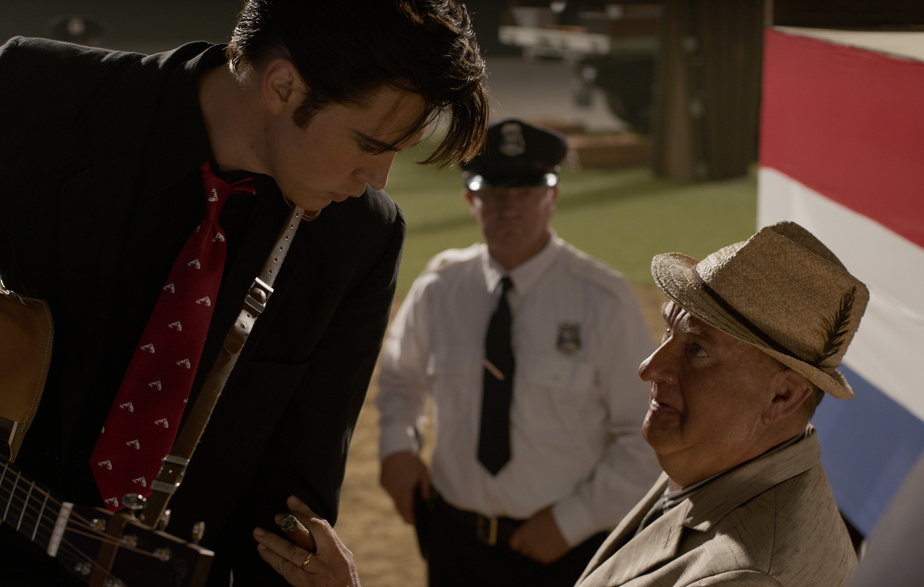Nine years later The Great Gatsbythe director of Red Mill Baz Luhrmann offers a “Shakespearean” vision of the life of Elvis Presley, through that of Colonel Parker, famous impresario of the King. Starring Austin Butler, whose performance won unanimous approval at the Cannes Film Festival, and Tom Hanks, Elvis brings the icon to life on the big screen.
Posted at 6:00 a.m.
Recognized for his flamboyant approach to directing, thanks to films like Strictly Ballroom, Romeo+Juliet and Red MillBaz Luhrmann is part of a generation that grew up listening to the hits of David Bowie, Elton John and Michael Jackson, rather than those of the singer of love me Tender. For the Australian filmmaker, the desire to make a feature film on the life of Elvis Presley comes above all from the exceptional nature of the artist’s performances on stage, but also from the social context in which he evolved.
“In performance, Elvis was a force of nature, recalls Baz Luhrmann during a virtual press meeting at which The Press participated. I resisted for a long time the will to tell his life in the cinema, until I realized that a great idea deserved to be explored through him. To understand today’s world, you have to go back to the 1950s, 1960s and 1970s. A thirst for renewal set in at that time, which notably crystallized in a convergence of different cultures in music. What makes Elvis’ life a tragedy is the way he was exploited. »
Amadeus for model
Cogitating this feature film for five years, the filmmaker wanted to take a “Shakespearean” approach to go beyond the traditional biographical drama. In his eyes, the greatest model of the genre remains Amadeus, a masterpiece that Milos Forman made almost 40 years ago. In the same way as the director of Flight over a cuckoo’s nest told, by bringing Peter Schaffer’s play to the screen, the story of Mozart through the vision of his “rival” Salieri, Baz Luhrmann chose to tell that of Elvis Presley (Austin Butler) by borrowing the point view of Colonel Tom Parker (Tom Hanks). The latter managed the career of the singer by squeezing the lemon to the maximum.

PHOTO JOEL C RYAN, ASSOCIATED PRESS ARCHIVES
Tom Hanks, Baz Luhrmann and Austin Butler at the presentation ofElvis at the Cannes Film Festival
“There is also that Elvis was himself a man of few words, specifies the filmmaker. Rather, he revealed himself through his songs and actions. He was also very sensitive, very worried, but he exploded on stage. »
Having emerged at a time when America was in turmoil, Elvis Presley can hardly be divorced from the political and social context of a time when demands for greater social justice, including recognition of civil rights for African Americans, were beginning. to be heard loud and clear.
“Politics is not the subject of the film, but it is certain that it is always there, implicitly, indicates Baz Luhrmann. It is impossible to discuss the life of Elvis Presley without talking about segregation and racism. He was at the heart of this reality. By meeting people who knew him at Graceland, I was able to see how Elvis was a spiritual being, very attracted to gospel music. In a short time, tragic things have also happened on the political level: the assassinations of John F. Kennedy, Martin Luther King. Robert Kennedy was assassinated while Elvis was filming the TV special marking his comeback to music. »
Austin Butler, major asset
Above all, Baz Luhrmann wanted to make Elvis’ life a great cinematic spectacle. He practically made a vocation of it.
“I carry within me a passion for cinema that comes from my childhood,” he says. I love this idea of bringing strangers together in a dark room and having them share common emotions. I almost make it my mission, especially with what we’ve been through over the past two years. »

PHOTO PROVIDED BY WARNER BROS. PICTURES
Austin Butler and Tom Hanks in Elvis
Aware that his flamboyant approach cannot always be unanimous (the critics the day after the launch ofElvis at the Cannes Film Festival were rather mixed), the filmmaker is in any case certain of a major asset: Austin Butler.
“When I first met Austin, he had already been living with Elvis in his head for quite a while. To the point where I find it difficult to say today if it was really me who chose it. It’s that big. I did all possible and imaginable tests with him. Everyone will have their opinion about this film and it’s not for me to express one, but I can say unequivocally that Austin’s performance is impressive. »
For new generations
The filmmaker also knows very well that by bringing to the screen the life of an icon still occupying such importance in the American collective imagination, even 45 years after his death, he is exposing himself to the grievances of die-hard admirers. of Elvis Presley.
“I understand the emotions of Elvis fans. He opened so many doors that I gave myself the mandate to tell his story and that of Colonel Parker to new generations. But I didn’t make this film to tell them that they should love it as much as their elders. »
Elvis hits theaters June 24.

